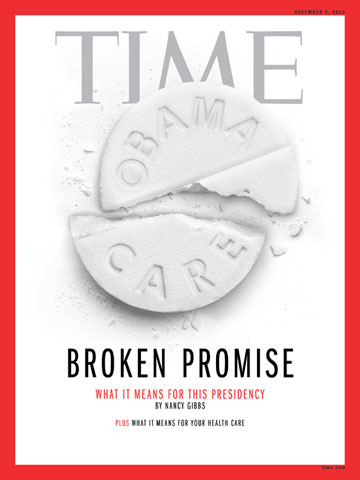
(5 of 6)
The President says he's got "one more campaign" in him, and that's getting health care reform right. Earlier this year, Obama recruited his campaign opinion-research guru David Simas as a senior adviser on selling health care reform. Simas understood that of all government policies, those affecting health care are the most personal, to the point where no one really thinks about them as public policy. And so it could not be more different from a presidential campaign. "When people go to vote, they are not making these potentially life-altering decisions about their kid or their mom or their dad or themselves," Simas told Time back in June. "Health care is personal. We are sending them to a place where they have to make a decision to buy something. It's completely--completely--different."
But Simas was confident. "I believe this is an instance where good policy makes great politics, because this is going to be meaningful and tangible to people," he said. "People have been asking, What do I get from Obamacare? Millions of people are about to find out."
And so they have. Democrats admit they're now in a hole; if the midterm elections were held tomorrow, they'd lose. Which is hugely frustrating for them, since the most ambitious parts of the law--the expansion of Medicaid benefits, the end to discrimination against people with pre-existing conditions, the coverage of adult children--have little to do with the individual-insurance market at the center of the current storm. They note that both the original Medicare law in 1965 and the prescription-drug expansion under George W. Bush had rocky rollouts and that they always assumed the ACA would need to be refined over time. But Republicans in Congress have no interest in revision, only repeal.
Obama aides insist that the focus right now is on fixing the site rather than assigning blame. "When the website is working better and all of that, the politics are going to be fine," says one senior White House official. "If your contractor at your house screws something up, you tell them to fix it, you don't go hire new contractors. We could do public stoning of the people the political class thought were responsible for this in the middle of the street, and if the website didn't work in two weeks none of that would matter." Meanwhile, Henry Chao was on the Hill explaining to lawmakers that 30% to 40% of the system was still being built.
Some Democrats insist that they have a year to get this right and that they can frame the elections in November 2014 as being about Republicans' continued efforts to undermine the health care law. But that smacks of spin, and the blows could keep on coming: if the website is not fixed by the next deadline, Nov. 30 of this year; if more people find their premiums going up in January; if by March 31, the individual-mandate enrollment deadline, insurers find their risk pools stacked with old, sick people. "Democrats in the midterms are [in trouble] if they don't get their act together and get this running effectively," says one party operative working on 2014 races. "The bigger problem than the substance of the health care debate, which candidates individually should be able to neutralize, is a Democratic Party that seems incompetent, dithering and weak."
